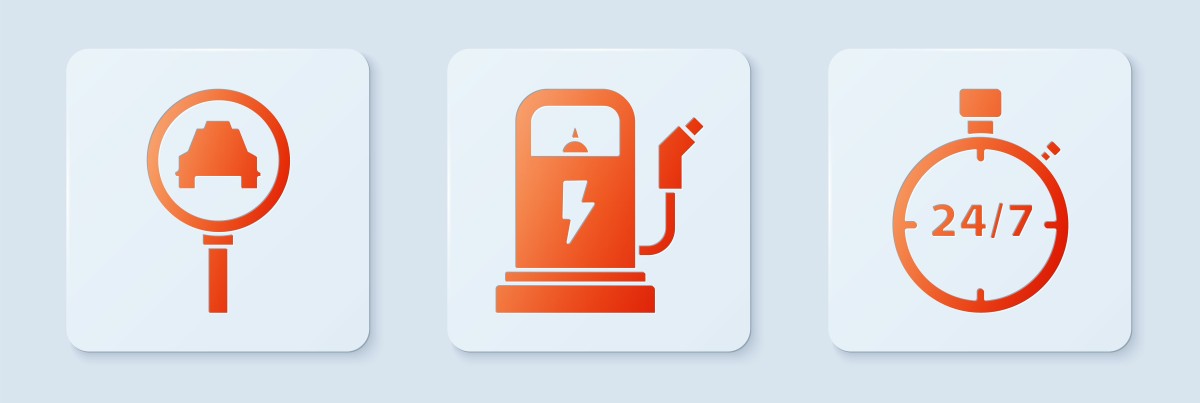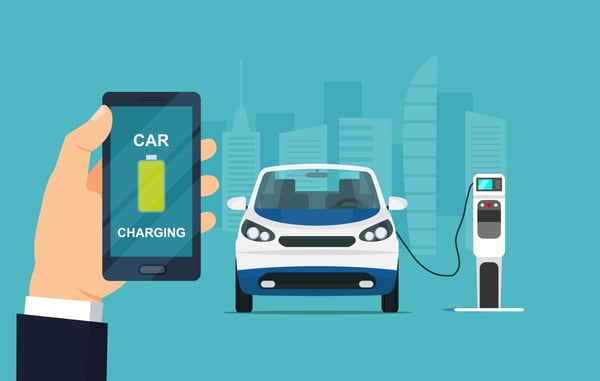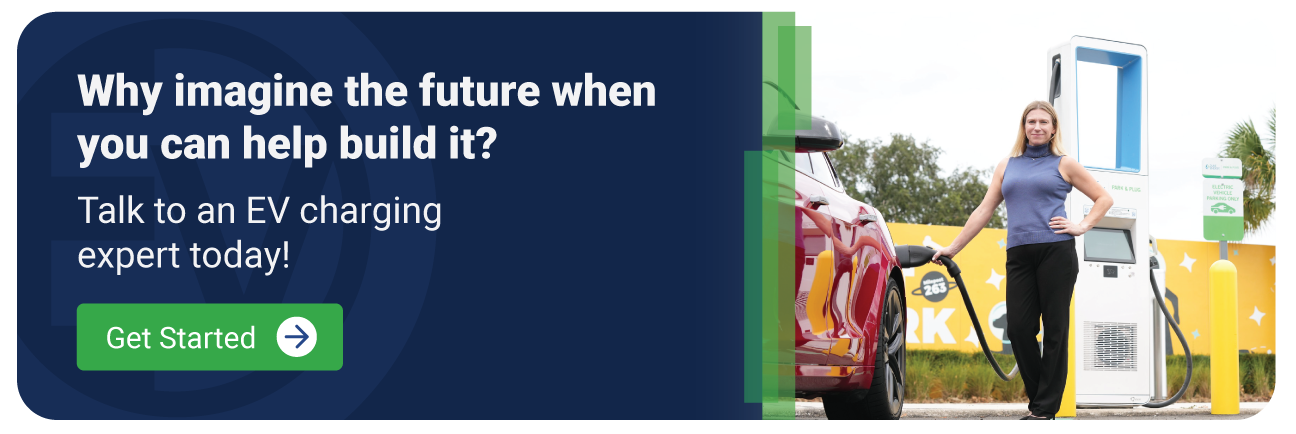Why EV Charging Station Maintenance and Support Matters
Jan 15, 2024 | 7 MIN READ
 We’ve said it; you’ve heard it, and quite possibly experienced it: EV charging station reliability is a concern. As EVSE providers, we can work to provide the most reliable hardware and software (charging platforms available), but one thing technology cannot (yet?) master is maintenance free.
We’ve said it; you’ve heard it, and quite possibly experienced it: EV charging station reliability is a concern. As EVSE providers, we can work to provide the most reliable hardware and software (charging platforms available), but one thing technology cannot (yet?) master is maintenance free.
That means EV charging station owners need to be mindful of the warranties, maintenance, service and support that EVSE providers can offer. Understanding the impact of those factors as well as what to look for when investing in EV charging stations is among the most important steps you can take as you consider an EV future.
Quick Links
- The Challenge of EV Charging Station Reliability
- The Role of EV Charging Station Maintenance in Station Reliability
- What Kind of EV Charging Station Maintenance Is Needed?
- EVSE Provider Support, Warranty, and Maintenance Assistance
The Challenge of EV Charging Station Reliability
More and more EV stakeholders are starting to understand a very simple truth: increasing charging station density means nothing if EV charging stations are unreliable. For nearly a decade, we saw EV adoption rates increase, but recently those numbers have begun to stagnate. Of course, EV manufacturers and other stakeholders wondered why.
That answer came in a recent JD Powers study which revealed that approximately 20% of EV chargers are unreliable. In other words, for one reason or another, drivers were unable to charge their vehicles at the charging station they chose. However, those numbers were different in states where EV infrastructure was both available and reliable.
While some argue that flagging adoption rates means we can put investing in EV infrastructure on the back burner, the truth of the matter is the opposite is true. Electric vehicle technology will continue to improve, with EV ranges growing meaning more EV infrastructure will be needed, especially at more diverse (and rural) locations.
In short, the lack of EV charging reliability is impacting not only EV adoption for potential new buyers but also the satisfaction of existing owners and, potentially, your residents, employees, visitors, customers, and more.
 The Role of EV Charging Station Maintenance in Station Reliability
The Role of EV Charging Station Maintenance in Station Reliability
We can’t solve a problem without understanding why it’s happening. That’s where we are now. We’re looking at the existing problem and rather than digging down to root causes, we’re looking for alternative solutions. Instead, we need to focus at the start and that’s examining how we handle maintenance for EV charging stations.
Because the housing and hardware on EV charging stations is designed specifically for the elements, the primary issue for many stations is they are either non-networked or the network is down.
Networked vs Non-networked Charging Stations
Good maintenance is preventative maintenance so it almost goes without saying that the first maintenance choice you make is in your actual EV charging station. Arguably, it’s your choice of EVSE provider, but we’ll get to that later.
Non-networked EV charging stations are stand alone units and are not connected to anything. In addition to other disadvantages, one of the biggest concerns with non-networked chargers is there’s no way for station owners to know when they’re non-functional. While there are no fees for the actual charging (due to lack of network), their lack of network connectivity can make them unreliable.
In contrast, networked EV charging stations are connected to a network (not the internet!) which allows station owners or hosts to monitor their status, ensuring that if maintenance is needed, they know. You can’t fix something if you don’t know it’s not working.
That means for networked EV charging stations, reliability comes down to whether stations are online and able to connect to charging networks including charging apps and gateway servers which communicate with the charging platform management system (CPMS).
If EV charging stations are offline, they’re unusable. Not only will they not appear on charging maps, but drivers will not be able to pay nor can the stations initiate the charging session. So for networked EV charging stations, failure to maintain network connections and ensure connectivity impacts charging station reliability.
What Kind of EV Charging Station Maintenance Is Needed?
So, let’s say you’ve got networked EV charging stations, do those need maintenance? Possibly, at some point. Of course there are other measures you can take to ensure EV charging stations stay functional, but they’re machines. At some point, they may need maintenance.
Thankfully, EV charging stations are designed with simplicity and longevity in mind. In fact, the housing is both weather and impact proof. While not necessarily a “standard” example, after Hurricane Ian came through Southwest Florida, NovaCHARGE got a call from a condo in Naples where the charging stations had been submerged under 4’ of water and were showing as offline. Despite the salt water and storm impact, once the water went down and the charging stations went back online, they were still able to deliver a charge because the housing, cables, and more are designed to withstand environmental impacts.
Further, the ongoing standardization of charging connectors helps ensure compatibility across various EV models, simplifying the charging process and minimizing the need for frequent adjustments or repairs. The connectors are, like the housing, durable and built to withstand the rigors of regular use.
In short, while scheduled maintenance may include checking the housing, cabling and more, the bigger maintenance issue for EV charging stations has to do with network connectivity.
While many EV charging network providers are pinging stations at regular intervals and providing data regarding connectivity status, for most charging stations, real time data is really one of the best ways to ensure charging stations are functioning as expected and on driver demand.
 EVSE Provider Support, Warranty, and Maintenance Assistance
EVSE Provider Support, Warranty, and Maintenance Assistance
The reasons noted above are the real reasons why choosing your EVSE provider is the first step in ensuring EV charging station reliability, as it relates to maintenance.
While maintenance tasks related to housing, cabling, and more are part of the standard maintenance provided by most EVSE providers, station owners can assist by visually checking cables and ensuring the area around charging stations are both clean and free of potential hazards.
Still, it’s important to note that not all EVSE providers are the same when it comes to providing service, support, or maintenance assistance. Before entering into any agreement to provide EV charging stations on your property, it’s best to understand what your provider is offering and how that compares to others in the market.
EV Charging Station Warranty
Let’s start with the EV charging station warranty. There’s a reason we, as consumers, make jokes about costly repairs happening just after a warranty expires. The charging world is no different. As we all know, minor repairs may come with a minimal cost, but repairing (or replacing) broken chargers, with significant issues, can be quite costly.
Check the warranty pricing and period. Every EVSE provider is different and plans may be limited while some warranties not only last longer but may also be renewable. Similarly, if you work with an installer rather than a turn-key solution provider, understanding whether that impacts the warranty is vital as is clarifying who is responsible for what work and what coverage. In short, it can get complicated quickly.
Finally, it’s important to also understand that a warranty may also depend on the type of charger. For some manufacturers and EVSE providers, DC fast chargers have different warranty plans (and costs), so checking with your provider and asking about warranty terms is a must-do for initial conversations.
EV Charging Station Service and Support
As we mentioned, ideally, when it comes to hardware, service and support needs should be minimal. Still, any service contracts you maintain with EVSE providers should include a few important details, including the response time for specific repairs and network reliability and uptime requirements. To be honest, you shouldn’t settle for anything less than 99.999% uptime.
Similarly, your CPMS should help you actively monitor your charging stations for issues because, as we mentioned, preventative maintenance is the best kind. For example, NovaCHARGE chargers and CPMS, ChargeUP, are compatible with NovaBOT, AI driven maintenance assistance. NovaBOT provides assistance for Level 1 operational issues, runs 24x7, is completely scalable, and alerts human support when additional support is needed. Clients essentially have a reliable and flexible maintenance support “person” all the time.
Because many EV charging stations often feature smart technology and remote monitoring systems, station owners and hosts should be able to use their CPMS to identify and address issues proactively. From detecting faults, assessing usage patterns, and even performing software updates remotely, AI and a robust CPMS can help with network maintenance, reducing the need for on-site interventions.
So, in addition to asking your EVSE provider about their warranty, those in the market (and even those with existing contracts) should ask their providers how they’re able to support their goals when it comes to ensuring charger uptime and reliability.
Your EV charging stations, their ability to deliver ROI and the countless benefits they add to your residential building, business, retail location, community and more all depend upon the reliability of your station. If the charging station isn’t working for drivers, it’s also not working for you.
If you’re ready to experience the future, not just of EV charging but also EV charging station support and service, reach out to the NovaCHARGE team today and let’s discuss the solutions available to you.
